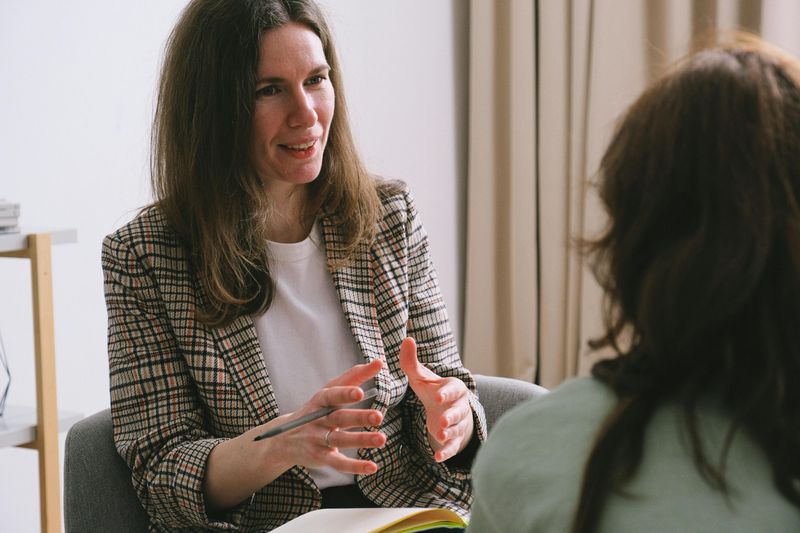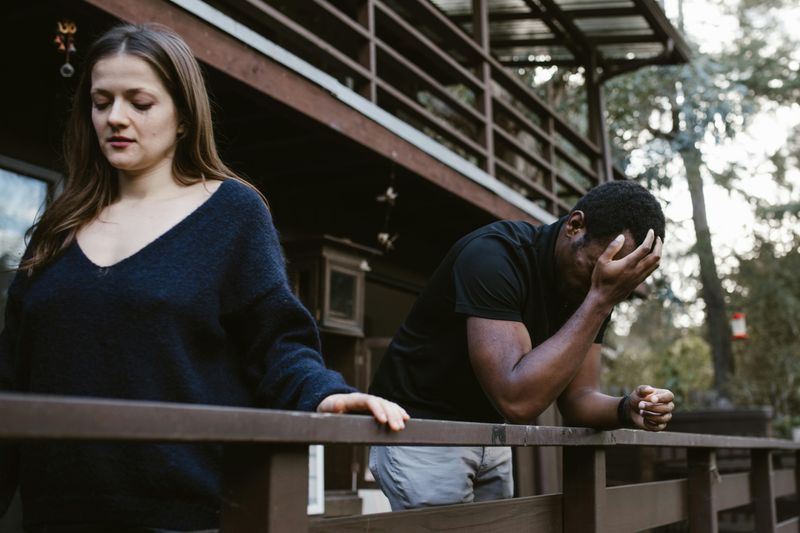11 Questions to Ask Yourself Before Forgiving

Forgiveness can be both healing and challenging. When someone hurts us, deciding whether to forgive isn’t always straightforward. Taking time to reflect before offering forgiveness helps ensure your decision comes from genuine understanding rather than pressure or obligation. These questions will guide you through important considerations before taking that step.
1. Can I Name What Actually Hurt Me?

Before rushing to forgive, get clear on what caused your hurt. Was it what they said, what they did, broken promises, or what they left undone?
Sometimes we react to surface issues while deeper hurts remain unnamed. Getting specific helps prevent forgiving the wrong thing while the real wound festers underneath. This step is about honesty with yourself.
Try writing down what happened and how it made you feel. This simple exercise often reveals whether you’re ready to forgive or need more time to understand your own feelings first.
2. What Were Their Intentions?

The difference between malice and mistakes changes everything. Someone accidentally stepping on your foot feels different from someone deliberately kicking you, even though both actions hurt.
Consider whether the person meant to cause harm or if they were careless, misunderstood the situation, or were dealing with their own struggles. Accidental harm often requires a different forgiveness approach than intentional cruelty.
Remember that you may never know their true intentions with complete certainty. Your assessment helps guide your forgiveness journey, but holding space for complexity is part of the process.
3. Have They Taken Responsibility?

It’s easier to forgive when we’re met with real accountability. A heartfelt apology—one that includes recognition, remorse, and a desire to grow—can soften defenses and clear the path to reconciliation.
Watch for non-apologies like “I’m sorry you feel that way” or excuses that shift blame back to you. These responses suggest they haven’t fully owned their role in causing harm. Accountability doesn’t guarantee you must forgive, but its absence raises important questions.
Sometimes people show responsibility through changed behavior rather than words. Notice if their actions align with genuine understanding of the impact they had on you.
4. Has My Pain Been Acknowledged?

Validation is a fundamental human need. Before rushing to forgive, consider whether your feelings have been recognized as legitimate – either by the person who hurt you or by someone else who matters to you.
When our pain goes unacknowledged, forgiveness can feel like erasing our own experience. This doesn’t mean the other person must agree with your perspective entirely, but they should recognize your feelings as real and valid.
If external validation isn’t available, self-validation becomes crucial. Can you honor your own experience even if others don’t? Sometimes this internal acknowledgment provides enough foundation for authentic forgiveness.
5. What Am I Hoping Forgiveness Will Achieve?

Forgiveness serves different purposes for different situations. Are you seeking to restore a relationship, find personal peace, or establish justice? Your motivation shapes how forgiveness might look.
Some forgive to rebuild trust and closeness. Others forgive primarily for their own emotional freedom while maintaining distance from the person who caused harm. Neither approach is inherently better – what matters is alignment with your authentic needs.
Be honest about what you’re seeking. If you’re hoping forgiveness will change the other person’s behavior or guarantee they’ll never hurt you again, you might need to adjust your expectations to avoid future disappointment.
6. How Would Life Change If I Forgave?

Letting go through forgiveness can recalibrate your emotional energy. Think about it—what mental space is currently occupied by holding on? And what could emerge if that space were cleared?
Many people report feeling physically lighter after genuine forgiveness. Resentment requires maintenance – tracking grievances, replaying scenarios, justifying anger. When we let go, that mental space becomes available for more fulfilling thoughts and experiences.
Consider also practical changes. Would interactions with certain people or places become easier? Might family gatherings or workplace dynamics improve? Visualizing these potential benefits can help clarify whether you’re ready for this step.
7. What Boundaries Do I Need Going Forward?

Forgiveness doesn’t mean becoming vulnerable to the same hurt again. Healthy boundaries protect both you and your relationships from repeating harmful patterns. Think about what limits or guidelines would help you feel safe.
Some boundaries might involve direct communication: “I can forgive what happened, but I need you to respect when I say no.” Others might involve internal decisions about how much trust you extend or time you invest. Forgiveness with boundaries often creates the strongest foundation for healing.
Remember that setting boundaries isn’t punishment – it’s responsible self-care. Clear limits actually make forgiveness more sustainable because you’re not anxiously waiting for the next wound.
8. Do I Need More Time Before Deciding?

To hurry forgiveness is to misunderstand healing. Though we’re taught that swift forgiveness is noble, emotional recovery is rarely so simple. A recent wound isn’t yet a scar—it demands patience.
Pay attention to your emotional state when considering forgiveness. If intense anger, fear, or hurt still surfaces regularly, you might need more processing time. This doesn’t mean you’ll never forgive – just that the groundwork isn’t complete.
Premature forgiveness can create a false sense of closure while unresolved feelings continue affecting you beneath the surface. Honoring your timeline isn’t selfish – it’s how you ensure forgiveness, when it comes, will be genuine and lasting.
9. How Will Forgiveness Affect Our Relationship?

Forgiveness transforms connections in various ways. Sometimes it restores closeness, while other times it simply brings peaceful distance. Consider realistically what might change between you and the person who caused harm.
Forgiveness doesn’t automatically reset a relationship to its previous state. Trust rebuilds gradually through consistent actions over time. Some relationships actually improve after forgiveness because both people develop better communication skills through the process.
Be honest about what type of relationship is healthy for you moving forward. Forgiveness might mean restoring a friendship, establishing a cordial but distant connection, or simply releasing bitterness while maintaining separation. All can be valid expressions of authentic forgiveness.
10. What If I’m Not Ready To Forgive Yet?

Contrary to popular belief, withholding forgiveness isn’t always destructive. Sometimes it’s the protective response you need while processing difficult experiences. Forgiveness timing is deeply personal.
Instead of forcing forgiveness, consider holding space for your current feelings without judgment. You can acknowledge hurt without letting it control your life. Many people find that setting forgiveness aside temporarily actually creates room for natural healing to begin.
Remember that “not yet” differs from “never.” You’re not failing by needing more time – you’re honoring your authentic process. Some of the most meaningful acts of forgiveness come after thorough reflection rather than immediate pressure.
11. Am I Forgiving From Strength Or Obligation?

Authentic forgiveness comes from inner strength, not external pressure. When we forgive because we “should” or to please others, we often create internal conflict rather than peace.
Check your motivation by noticing how the thought of forgiving makes you feel. Genuine readiness typically brings a sense of calm empowerment, while obligation-based forgiveness often creates anxiety or resentment. Your emotional response offers valuable clues about your true readiness.
The most healing forgiveness emerges from your own values and choices, not from religious, family, or social expectations. Taking ownership of your forgiveness decision – including the timing – ensures it will serve your wellbeing rather than undermining it.

Comments
Loading…